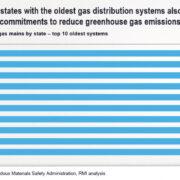LET us face the reality of our situation: the pace and quality of our lives now and in the foreseeable future will be dictated by the coronavirus disease 2019 or COVID-19.
The virus respects no human title. The Crown Prince of England is infected and the British Prime Minister as well. Senators and Congressmen here and in the US are infected. A World War is raging and we can only see the enemy in a laboratory test.
President Trump wants to declare America reopened for business by Easter. He wants people to pack their Churches in celebration of Easter, the most important holiday in Christianity. He wants businesses to start churning the economy again. But it is not his call. The virus will make that call.
We can only react to the challenge the virus in hurling at us each day. The quality of our response will dictate how soon we can get back to normal.
Are we actively testing and isolating more cases? Are we getting more ventilators and building more overflow patient facilities? When can we expect a cure and a vaccine?
This is why it is important we have leaders we can trust and have confidence in their ability to make the right decisions. I am not sure Health Secretary Duque still deserves our trust.
Duque played politics with China and then the VIP tests. We had just three cases between Jan. 30 and March 4. Then the numbers increased. He wasted 35 days by not preparing more test and other facilities for the upsurge.
It isn’t as if changing him is like changing horses in the middle of a war. The graphs show the war has barely started for us and we must flatten it.
It isn’t as if we are lacking in leadership talent. There is former health secretary Manuel Dayrit who has experience managing our SARS response and also has WHO work exposure. There is Dr Gap Legaspi of UP-PGH, who keeps on impressing us with his ability to get things done despite lack of resources.
This is still primarily a health and not a military crisis. We need a credible medical professional in top level decision making. That’s not Duque.
As we approach a month of total isolation for many countries, the question is often asked: Will our economies survive the virus? Will people revolt over the draconian measures before the virus kills them?
It is bad for poor countries like ours. We have so many people living in extreme poverty even in the best of times. Now we must add those living hand-to-mouth who lost their daily wages.
It is easy to demand that government provide our poor with enough money to cover basic needs for as long as the medical emergency exists. Our national treasury can probably afford such subsidy for a month or two. But what happens if the virus lingers for a year or more?
The emergency power law recently passed by Congress provides for an emergency subsidy of P5,000 to P8,000 to 18 million low income households all over the country. The President has the power to realign whatever money there is in all government agencies, including GOCCs.
But the big question is, how will the poor get hold of those funds? We don’t have a system to flow the money down without a large part of it being lost in the hands of corrupt officials.
Things will get worse before it gets better. According to NEDA, without mitigating measures, they see a reduction in our real GDP growth to -0.6 to 4.3 percent this year.
NEDA also warns that “if the ECQ is extended beyond one month, or if the spread of COVID-19 is unabated even after the ECQ, then even the low-end of the estimate is still too high.”
That’s why some economists, like Toti Chikiamco, are saying a prolonged lockdown will cause not only an economic crisis, but also a social crisis, with food riots and other socially disruptive events.
Because the Philippines has a young population with a median age of 23 versus Italy with a median age of 46, Toti thinks it should be possible to risk easing the lockdown by April 14.
By easing, that means allowing mass transport to operate and businesses to reopen, provided, regular disinfection is mandated for all mass transport, and social distancing where possible.
Toti wants to adopt a risk-based approach to confront the epidemic – omnipresent temperature checking before entering workplaces, mandate wearing of masks for everybody, continuous public education on hand washing, social distancing;
“Continue the bans on mass gatherings of more than five people; continue the quarantine of seniors who are the most vulnerable to the virus; build surge capacity of temporary hospitals and quarantine hotels for PUIs or Persons Under Investigation. It’s important for suspect cases to be removed from their families as they can spread the infection to their families as what happened in Wuhan;
“Continue the ban on foreign visitors, or put all visitors under a 14-day quarantine. Let herd immunity build among our young population. Eventually, too, we have to do mass testing. Therefore, we have to reserve resources to buy cheap testing kits that are presently being developed by biotech companies.
“In other words, the Philippines can’t afford the 60, 90 or-120-day lockdowns being contemplated in the West. The cure may be worse than the disease…
“Flattening the curve is really about matching our health capacity to the exponential increase in cases, and therefore, hopefully, more people will be saved. How many lives will be saved, versus how many lives also lost due to hunger and unemployment?”
There is also a proposal to devalue the peso to P55 to $1 as an economic relief and stimulus package: it will put money in the pockets of OFWs, boost exports and BPOs, and protect import-substituting local industries. China is reported to have quietly done that for the yuan.
“With oil prices at historic lows and demand down, the inflationary aspect is muted.”
So many things to do. So little time. Not enough data to act upon. And we have to fight this virus intelligently. Mistakes are too costly in terms of negative impact on lives as well as on the economy.
* * *
Boo Chanco’s e-mail address is [email protected]. Follow him on Twitter @boochanco








